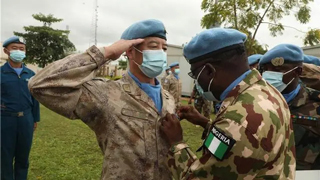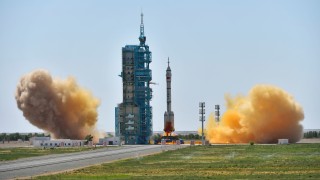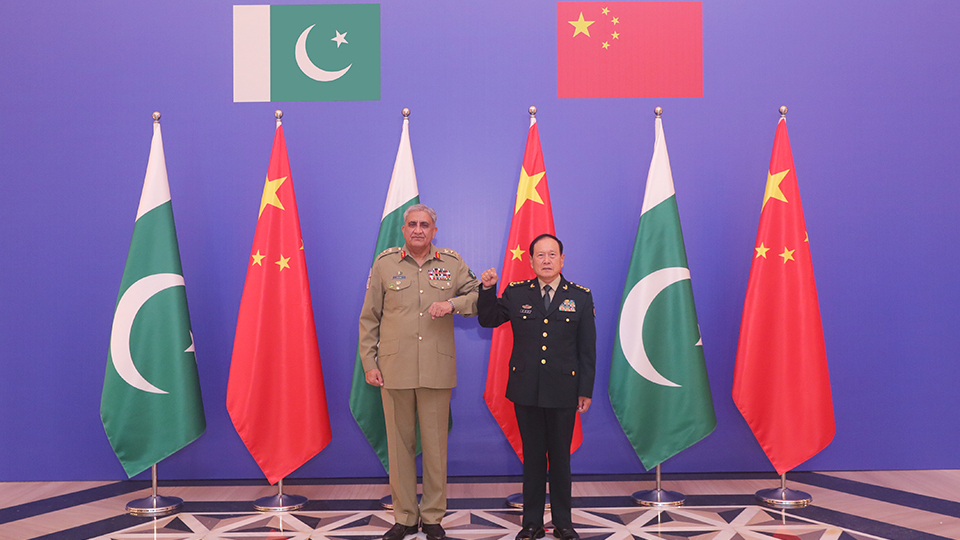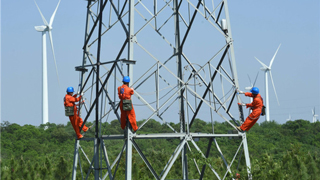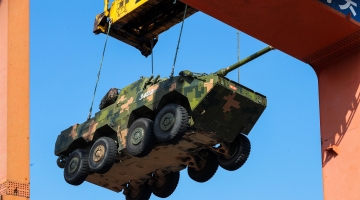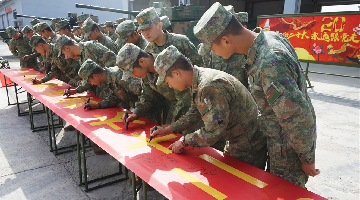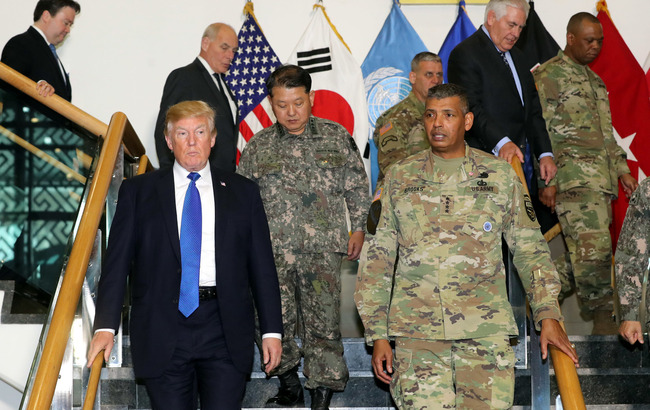
By Zhou Yongsheng
The Republic of Korea (ROK) government recently held a Standing Committee conference of the National Security Council (NSC). It decided to speed up the reclamation of 26 US military bases, and demanded that the US military should assume the huge costs of environmental restoration. The move has once again intensified bilateral relations.
In fact, it’s not a new policy that the ROK wants to recover the US military bases. The ROK and the US have reached an agreement at the beginning of the century. There were at most over 80 US military bases in the ROK in history and 54 of them have been reclaimed by the ROK. However, the acceleration in reclamation of the US military bases this time has an unusual meaning.
On the one hand, the easing of the ROK-DPRK (Democratic People’s Republic of Korea) relations and the growing ROK military strength make the ROK become less dependent on the US military. For the ROK side, the existence of the USFK meets the strategic interests of the US more. However, the ROK side has to assume the huge ever-increasing maintenance costs of these bases and the cost of environmental pollution. In addition, various scandals brought by the USFK have been a great concern for the ROK authorities. In this case, maintaining a large number of US military bases obviously cannot make up for the ROK’s costs.
On the other hand, the ROK’s accelerating the reclamation US military bases is to show its strength and gain more bargaining chips from the US. Since US President Donald Trump took office, he has constantly asked US allies to assume more expenses for the US garrisons. Earlier this year, the 10th US-ROK Special Measures Agreement (SMA) was reached with a validity of only one year. In 2019, for the first time the ROK’s share for the USFK exceeded 1 trillion won. Besides, US President Trump clamored for the ROK to take on more defense expenses soon after the agreement was signed. Facing the endless demand for expense increase from the US, the ROK has decided to accelerate the recovery of military bases, in an effort to gain more bargaining chips for future negotiation.
Unlike the previous recovery of the US military bases, this time the ROK requested the US to pay a huge cost for cleaning up and restoring the base environment, which is unacceptable to the US. The US possesses a large number of military bases overseas and it has never paid such kind of cost. However, the USFK has produced serious environmental pollution during its long-term stationing in the South Korea. The ROK side thus has been determined to defend its own position. The two sides are at odds with each other, causing the return of some bases to be shelved for a long time.
In the previous recovery processes of the US military bases, the ROK mostly asked the US military to cut down its stationing locations or area, and to get them concentrated in Pyeongtaek, so that the ROK could have more control over its important strongholds. The ROK’s decision is also to show the US its dissatisfaction on many issues, but not to break up with the US military. The US did not take a stand at the beginning of the ROK-Japan trade dispute, and its coordination work afterwards was regarded by the ROK as a “biased action”. As the situation deteriorates, the ROK abolished the ROK-Japan General Security of Military Information Agreement (GSOMIA), and held a military exercise on the "Dokdo islets" where it has a sovereignty dispute with Japan. After that, the US criticized the ROK, which made the ROK quite dissatisfied. And the ROK government also criticized the US side for making irresponsible remarks, which is rarely seen in the ROK history.
Analysts hold that previously the US’s promoting the ROK-Japan intelligence cooperation is to form a trilateral alliance between the US, Japan and the ROK, or even to create an "Asian NATO" to safeguard the US' hegemonic position in Northeast Asia. However, the US is disappointed at the ROK’s refusal to renew the contract and the acceleration of the US military base recovery in the ROK will further tighten their bilateral relations. The two sides have common interests in regional security, but the future of their relations remains uncertain.
The US has tried to force the ROK to compromise given the DPRK nuclear issue and the ROK-Japan trade dispute. However, the ROK also knows clearly that it is a vital part for the US to implement its strategy in Northeast Asia. The ROK will take more measures concerned with people's livelihood and environmental protection against the US’s high-pressure policy while continuing to maintain the basic framework of the ROK-US military alliance.
(The author is a professor with the Institute of International Relations at China Foreign Affairs University)
